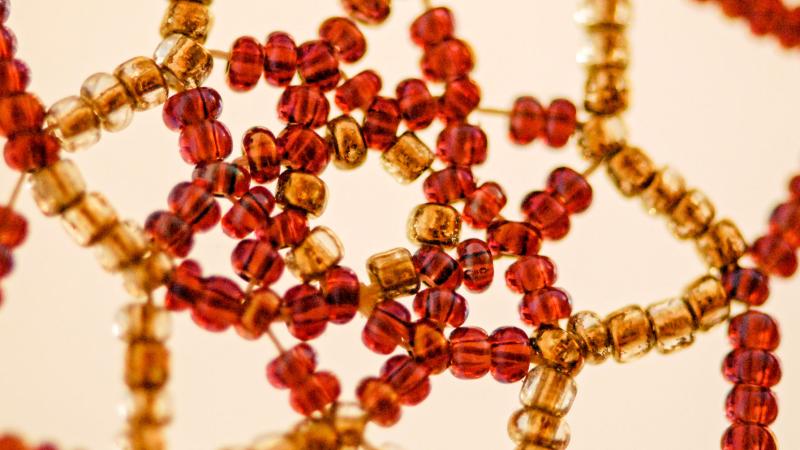Syphilis
Syphilis is a contagious bacterial infection that is mostly transmitted through sexual contact. It can also spread through direct skin to skin contact, or from mother to child during pregnancy.
Syphilis has been increasing in Quebec in recent years. Screening blood tests and effective treatment are available. If left untreated, syphilis can lead to severe complications like blindness, stillbirth, heart damage, and brain problems.
Did you know?
Syphilis can show up in many different ways, so it can be easily confused for other infections. It is very important to get tested if you have any genital sores, chancres, or a new body rash.
About Syphilis
- Syphilis is an infection caused by the bacteria Treponema pallidum.
- It is easily treated with antibiotics.
- It is very serious if it is not treated.
There are different stages of syphilis, depending on how long the infection has gone untreated.
- Syphilis can cause sores and rashes.
- These symptoms may look like other diseases, so it is important to get tested.
- In some cases, the symptoms may be mild and easily ignored. These symptoms should still be checked out by a doctor or nurse. Symptoms eventually disappear without treatment, but the infection still remains quietly in the body.
- Symptoms depend on how long someone has had the infection, or the “stage”:
1. Primary syphilis (3 – 90 days)
- The infection begins as one open sore called a chancre
- The chancre will appear between 3 days - 90 days after contact with an infected person
- The chancre shows up where the infection was transmitted
- This can be on the genitalia, inside the vagina or anus, or inside the mouth
- It is painless
- It usually has a red outline
- It is about 2 – 3cm wide
- The chancre heals on its own within 3 weeks
- The infection is most contagious at this stage
2. Secondary syphilis (3 - 6 months)
- A skin rash will show up several weeks after the primary chancre sore
- The rash is usually painless and not itchy
- It can show up on the chest, arms, palms of the hands, or soles of the feet
- The rash will heal on its own within 3 – 12 weeks
- Genital warts are also possible
- The infection is still contagious
3. Early latent syphilis (6 – 12 months)
- No symptoms
- The only way to detect syphilis at this stage is through a screening test
- The infection is still contagious
4. Late latent syphilis (Over 1 year)
- No visible symptoms
- The infection is no longer infectious and cannot be passed on to others
5. Tertiary syphilis (5 – 30 years)
- The infection gradually attacks the cardiovascular system (cardiosyphilis), joints and bones (syphilitic gum), and brain (neurosyphilis)
If let untreated, syphilis can cause:
- blindness
- heart damage
- death
- neurosyphilis which affects walking, balance, mood, and memory
- stillbirth
- deformities and disorders in babies born from a mother who has syphilis
- Detecting syphilis early is important for preventing complications and spreading it to others.
- If you find any open sores, genital warts, or a new body rash, do not wait to get checked.
- Book an appointment at the CMC for a screening test.
Syphilis is most often transmitted through sexual contact.
- Anyone who is sexually active is at risk of syphilis.
- It can also be passed through skin to skin contact with the chancre sore or rash.
Syphilis can also spread from an infected mother to her unborn baby during pregnancy.
- This is called congenital syphilis.
- If a mother is not treated during pregnancy:
- The baby can develop severe physical and cerebral problems that will affect them for life.
- Many of these pregnancies will end up as stillbirths (40%).
- This is why testing is recommended throughout pregnancy in Eeyou Istchee so that any cases of syphilis can be caught early on.
People at greater risk of getting syphilis:
- People who have multiple sexual partners per year
- People who have had an anonymous partner
- Men who have sex with men
- Sex workers and their clients (including those who exchange sexual favors for goods and/or favors)
Prevention & Screening
- Early and regular screening
- Everybody who is sexually active should get tested at least once in their life.
- If you tested positive for another STI, you will also be offered a test for syphilis.
- Condoms or latex barriers
- The chancre sore needs to be fully covered for condoms or barriers to prevent transmission from an infected person to their sexual partner.
- The chancre sore needs to be fully covered for condoms or barriers to prevent transmission from an infected person to their sexual partner.
If someone tests positive for syphilis:
- They will need to treat their infection fully (no sore or rash) before sexual activity with other people.
- They will be tested 3, 6, and 12 months after their treatment to make sure they are cured
- More testing may be recommended for people at high risk.
- Reinfection is possible if you are exposed to syphilis again.
Screening for syphilis is done by a blood test.
Treatment
- Syphilis does not disappear without treatment. Even if there are no symptoms, the infection is not over.
- Treatment for syphilis is given by injection.
- The number of doses depends on the stage.
- Treatment is very effective.
- The infection will still be contagious for at least 7 days after treatment, and until the sores are fully healed.
- Follow-up testing will happen for one year to ensure a good response to treatment.
- Syphilis treatment can be given at any stage in the infection, but it cannot reverse any damage that has already been done.
Explore more about Infections

Infections happen when germs enter someone’s body, and start to make the person sick.


